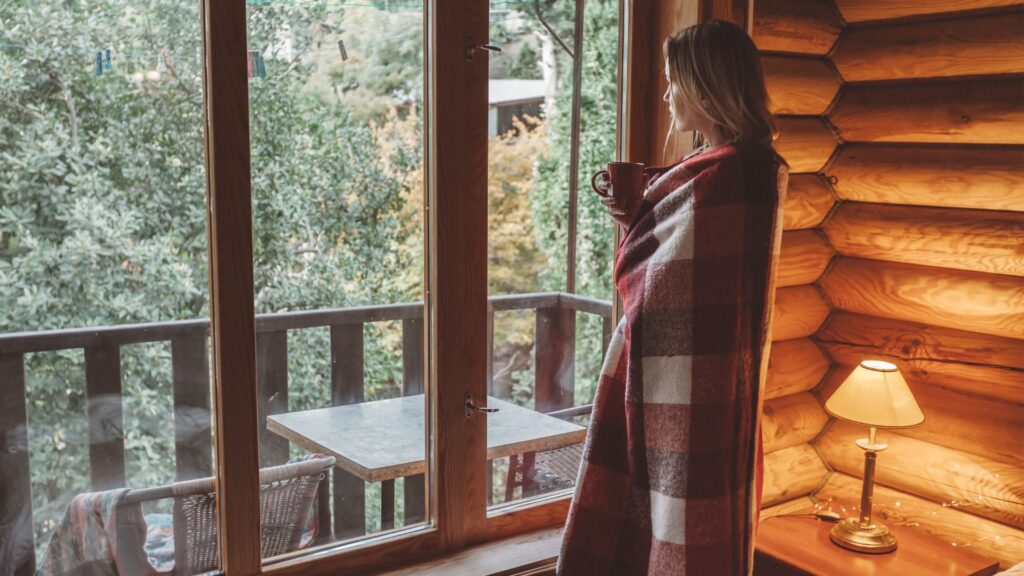
Winter has a profound impact on our moods, casting a unique spell that can evoke a range of emotions. Chilly weather awakens a sense of nostalgia and reflection and stillness in the weather inspires feelings of tranquility and peace. However, the prolonged darkness and shorter days can also contribute to a sense of melancholy and introspection.
The cold, biting winds may isolate us indoors, encouraging deep thought and self-discovery which might lead to a feeling of vacuum and loneliness for some people. It often leads to a range of emotional and psychological challenges. The shorter days and reduced exposure to sunlight during winter can be a contributing factor. Additionally, the cold weather may discourage outdoor activities, leading to social isolation and a decrease in physical exercise, both of which can contribute to feelings of loneliness and depression. This phenomenon is often termed as ‘winter blues.
The impact of the winter season on moods can vary from person to person, but there are some general trends that many people experience. Seasonal changes, including the onset of winter, can influence mood and well-being through various factors:
Reduced Sunlight Exposure: During the winter, days are shorter, and there is less sunlight. This can lead to a decrease in the production of serotonin, a neurotransmitter that contributes to feelings of well-being and happiness. Reduced sunlight exposure can also disrupt the body’s internal clock (circadian rhythm), affecting sleep patterns and mood.
Seasonal Affective Disorder (SAD): Seasonal Affective Disorder (SAD) is a type of depression that occurs at specific times of the year, typically during the fall and winter months when daylight hours are shorter. The lack of sunlight can disrupt the body’s internal clock and lead to changes in serotonin and melatonin levels, neurotransmitters that play a crucial role in regulating mood and sleep patterns.
Individuals with SAD often experience symptoms such as fatigue, difficulty concentrating, increased appetite (especially for carbohydrates), and a general sense of lethargy. The winter blues, as it is commonly referred to, can impact one’s daily life and overall well-being. Light therapy, counseling, and lifestyle adjustments, such as regular exercise and spending time outdoors during daylight hours, are commonly recommended strategies to alleviate the symptoms of SAD.
Cold Weather and Physical Activity: Winter weather can discourage outdoor physical activities, and exercise is known to have positive effects on mood. Reduced physical activity during the winter months may contribute to feelings of lethargy and a decline in mood.
Holiday season: This also has a mixed impact on people’s moods. With festivities and celebrations around some people are happy and joyful, but some are stressed. The pressure to meet social expectations, the financial stress associated with gift-giving, and the demands of holiday preparations can contribute to increased stress and anxiety. For a section of people low moods occur after festivities are over. With so much to do and amazing fun with friends and family, they feel suddenly lonely after all the fun is gone.
Comfort Foods and Weight Gain: Most people turn to comfort foods during the winter months. With the holiday season coinciding with winter, eating rich and heavy foods with negligible physical activity usually leads to weight gain. Changes in diet and weight can impact moods.

Cabin Fever: Being confined indoors due to cold weather or adverse conditions may lead to a phenomenon known as cabin fever. As the cold weather sets in, people often find themselves confined to the warmth of their homes, leading to a sense of restlessness and monotony. The prolonged exposure to indoor environments, coupled with limited outdoor activities, can contribute to a feeling of isolation, boredom, irritability, and discontentment.
It’s important to note that not everyone experiences negative effects during the winter, and some individuals may even find the season enjoyable. Additionally, there are various strategies to mitigate the impact of winter on mood, including exposure to natural light, regular exercise, maintaining social connections, and practicing self-care. Some tips are discussed below :
Increase Exposure to Natural Light: Spend time outdoors during daylight hours as much as possible. Keep curtains and blinds open during the day to let natural light into your home or workspace. You may consider using warm white light tube lights and bulbs in the house to create a brighter atmosphere.
Regular Exercise: Exercise is a natural mood enhancer. Engage in regular physical activity to boost mood and reduce stress and choose activities you enjoy, whether it’s indoor or outdoor exercise. Exercising outdoors even in winters is proven to be beneficial for both physical and mental wellbeing. Just make sure to dress up well according to the weather.

Maintain a Healthy Diet: Eat a well-balanced diet with plenty of seasonal and fresh fruits, vegetables, and whole grains. Fresh fruits and juices have a positive impact on the mood. Include foods rich in omega-3 fatty acids for example walnuts, fatty fish, and flaxseeds.
Stay Social: Make an effort to stay connected with friends and family. Meets indoors or outdoors as the weather permits. You may plan get-togethers and plan social activities or join clubs to maintain a sense of community. Sitting beside a bonfire with friends and enjoying popcorn and playing dumb charades and antakshari is sure to light up your mood.
Establish a Routine: Create a daily routine to provide structure and stability. Ensure you have a regular sleep schedule, as disruptions can affect mood.
Practice Mindfulness and Relaxation Techniques: Incorporate mindfulness meditation or deep breathing exercises into your daily routine. Consider activities like yoga to reduce stress and promote relaxation.
Set Realistic Goals: Setting unrealistic goals can be a source of unhappiness at times. Try breaking down larger tasks into smaller and more manageable goals. Celebrate even your achievements to boost your confidence and keep going.
Engage in Hobbies: Pursue activities you enjoy and that bring you a sense of accomplishment. Hobbies can be a great way to distract yourself and improve your mood. Plan enjoyable indoor activities to look forward to during the colder months.
They say that there is no such thing as bad weather, only bad clothing. So, just dress up according to the weather, heat your environment, and plan for activities that can help to get you moving. A conscious effort towards staying active and social will ensure that irritability, negativity, and loneliness stay away from you even in the non-conducive weather.